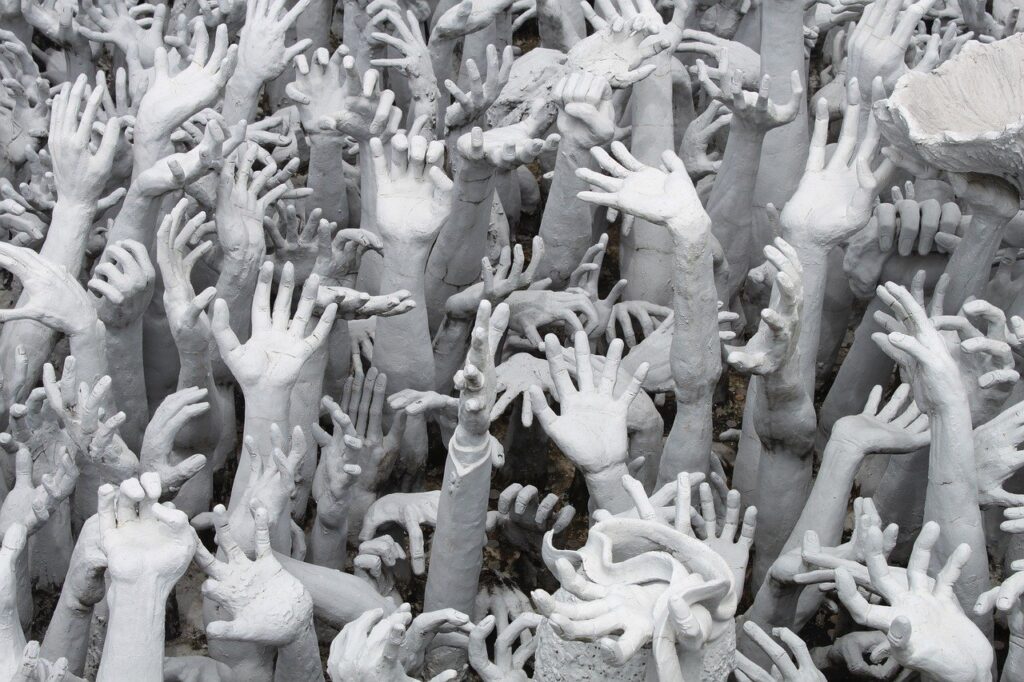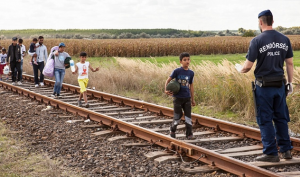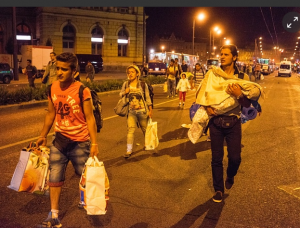

“One Facebook group called ‘Stations of the forced wanderers’, which has more than 100,000 members, is essentially a vast knowledge exchange community providing advice for those caught between smugglers seeking to exploit them and the authorities trying to thwart their journeys” (Financial Times 12th September 2015)
Stories are appearing in the press of street vendors rushing to refugee camps to sell them SIM cards so they can use WhatsApp, Viber and other free messaging services to keep them in contact with their families back home, with their relatives further along the road, and keep track of news updates.
According to Office of the United Nations High Commissioner for Refugees (UNHCR), by mid-Sep over 350,000 refugees, mostly from Syria, Iraq, Afghanistan and African countries, where conflict and poverty make a toxic mix, have already landed in Greece and Italy as they make their perilous way to the comparative safety of Europe. These numbers far exceed the 220,00 in 2014 who made the hazardous crossing of the Mediterranean Sea from North Africa to Southern Europe, at an estimated cost of over 2,500 lives of men, women and children. And these numbers do not include the nearly four million being helped by organizations like Mercy Corps, Save the Children, Oxfam, the Red Crescent and others in Syria, Iraq, Jordan, Lebanon and Turkey with food, water, shelter, household supplies and clothing.
Not since the Second World War have there been so many people on the move, such a huge wave of migration and such an impending humanitarian disaster. The role of ICTs in this story may sound marginal or even trifling, but it’s very real and can saves lives. The same issue of the FT reports that one refugee from Syria passing though Serbia as saying that after reaching Greece, migrants try to avoid people smugglers. “After that many prefer instead to rely on the digital trail of news and GPS information created by fellow migrants. You have an entire network of people right in front of you” he says.” The real difficulty for migrants is knowing what to believe and what not to believe. “Facebook often ends up spreading more rumours than information” according to another Syrian refugee contacted by the FT through WhatsApp.
In the nineteenth century, most migrations were the product of relative prosperity. Migration for the poorer parts of Italy to the USA, for example, coincided with periods of good economic conditions, so some members of poor families could afford to pay for the Atlantic crossing, hoping to bring their families over after they had found work in New York and other cities. Prosperity still plays a key role as richer countries attract migrant workers. According to World Bank estimates, there are more than 250 million people living outside their countries of birth, and over 750 million migrate within their countries. In 2014 remittances to developing countries exceeded $430 billion. In good times, these number grow.
But the current massive scale of migration is different. People are on the move because of bad times. Mixed in among them are those who are economic migrants, but the scale of the push factors seem to far outweigh the importance of the pull factors. ICTs are important to this movement. They provide information, as well as misinformation (rumours) and disinformation (often with criminal intent), and give direction and aspirations to migrants. But can ICTs offer a way to build new and better lives for those affected? There is no doubt that upheavals such as these are disruptive to the lives of both migrants and to the communities receiving them. Nevertheless, it should be borne in mind that ICTs are also by their nature disruptive in the best sense of the word. There should be no good reason why the same level of imagination that goes into the applications of advanced technologies cannot go into turning this human tragedy into an opportunity. One such initiative is the ICT for integration of immigrants & ethnic minorities (IEM) in Europe[1] . The history of migrations is the history of dark clouds with silver linings.
[1] See ICT for integration of immigrants & ethnic minorities (IEM) in Europe https://is.jrc.ec.europa.eu/pages/EAP/eInclusion/IEM.html.


